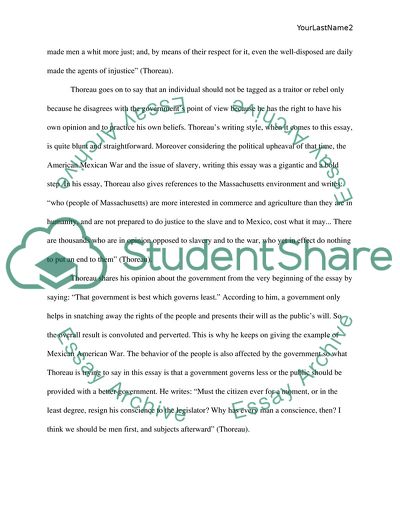Cite this document
(“Henry David Thoreau Civil Disobedience Research Paper - 1”, n.d.)
Retrieved from https://studentshare.org/english/1602080-henry-david-thoreau-civil-disobedience
Retrieved from https://studentshare.org/english/1602080-henry-david-thoreau-civil-disobedience
(Henry David Thoreau Civil Disobedience Research Paper - 1)
https://studentshare.org/english/1602080-henry-david-thoreau-civil-disobedience.
https://studentshare.org/english/1602080-henry-david-thoreau-civil-disobedience.
“Henry David Thoreau Civil Disobedience Research Paper - 1”, n.d. https://studentshare.org/english/1602080-henry-david-thoreau-civil-disobedience.


